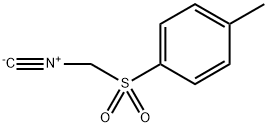THIOFLAVINE S
Synonym(s):Direct Yellow 7
- CAS NO.:1326-12-1
- Empirical Formula: NULL
- Molecular Weight: 0
- MDL number: MFCD00071453
- EINECS: 215-418-0
- Update Date: 2024-12-18 14:07:02
What is THIOFLAVINE S?
The Uses of THIOFLAVINE S
Thioflavine S is a reagent also known as Direct Yellow 7; potentially useful as an amyloid plaque stain. Dyes and metabolites.
What are the applications of Application
Thioflavine S is a reagent also known as Direct Yellow 7; potentially useful as an amyloid plaque stain
Preparation
(a) primrose spirit alkali (C.I.Direct Yellow 59, C.I. 49000) methylation, then will be preparing sulphonated product (GP 1251738); (b) primrose spirit alkali stlfonation, then will product methylation (GP 53333).
Definition
ChEBI: Thioflavine T is an organic chloride salt having 2-[4-(dimethylamino)phenyl]-3,6-dimethyl-1,3-benzothiazol-3-ium as the counterion. It is widely used to visualise and quantify the presence of amyloids, both in vitro and in vivo. It has a role as a fluorochrome, a histological dye and a geroprotector. It contains a thioflavin T cation.
Properties and Applications
green light yellow. For golden is soluble in water, but soluble in ethanol as a green fluorescent yellow. The strong sulfuric acid in nearly colorless, with blue fluorescence, after diluted orange yellow precipitation. Used for cellulose fiber, wool, silk dyeing, silk printing, also can be used for leather color. Exhaust dyeing, good levelness.
| Standard | Acid Resistance | Alkali Resistance | Light Fastness | Soaping | Water | ||
| Fading | Stain | Fading | Stain | ||||
| ISO | 2-3 | 4 | 1 | 1-2 | 2 | ||
| AATCC | 3 | 2 | 1 | 2 | 2 | ||
Properties of THIOFLAVINE S
| storage temp. | Amber Vial, -20°C Freezer, Under inert atmosphere |
| solubility | ethanol: water (1:1): soluble1mg/mL |
| form | powder |
| Colour Index | 49010 |
| color | Dark Red to Very Dark Brown |
| Stability: | Light Sensitive |
| EPA Substance Registry System | C.I. Direct Yellow 7 (1326-12-1) |
Safety information for THIOFLAVINE S
| Signal word | Warning |
| Pictogram(s) |
 Exclamation Mark Irritant GHS07 |
| GHS Hazard Statements |
H315:Skin corrosion/irritation H319:Serious eye damage/eye irritation H335:Specific target organ toxicity, single exposure;Respiratory tract irritation |
| Precautionary Statement Codes |
P261:Avoid breathing dust/fume/gas/mist/vapours/spray. P264:Wash hands thoroughly after handling. P264:Wash skin thouroughly after handling. P271:Use only outdoors or in a well-ventilated area. P280:Wear protective gloves/protective clothing/eye protection/face protection. P302+P352:IF ON SKIN: wash with plenty of soap and water. P305+P351+P338:IF IN EYES: Rinse cautiously with water for several minutes. Remove contact lenses, if present and easy to do. Continuerinsing. |
Computed Descriptors for THIOFLAVINE S
New Products
Tert-butyl bis(2-chloroethyl)carbamate (S)-3-Aminobutanenitrile hydrochloride N-Boc-D-alaninol N-BOC-D/L-ALANINOL N-octanoyl benzotriazole 4-Hydrazinobenzoic acid 3,4-Dibenzyloxybenzaldehyde 3-Nitrobenzaldehyde 1,1’-CARBONYLDIIMIDAZOLE R-2-BENZYLOXY PROPIONIC ACID 1,1’-CARBONYLDI (1,2-4 TRIAZOLE) 4-HYDROXY BENZYL ALCOHOL 3-NITRO-2-METHYL ANILINE (2-Hydroxyphenyl)acetonitrile 5-BROMO-2CYANO PYRIDINE 5,6-Dimethoxyindanone 5-broMo-2-chloro-N-cyclopentylpyriMidin-4-aMine 2-(Cyanocyclohexyl)acetic acid 4-methoxy-3,5-dinitropyridine 2-aminopropyl benzoate hydrochloride 1-(4-(aminomethyl)benzyl)urea hydrochloride tert-butyl 4- (ureidomethyl)benzylcarbamate diethyl 2-(2-((tertbutoxycarbonyl)amino) ethyl)malonate Ethyl-2-chloro((4-methoxyphenyl)hydrazono)acetateRelated products of tetrahydrofuran








You may like
-
 Thioflavine S CAS 1326-12-1View Details
Thioflavine S CAS 1326-12-1View Details
1326-12-1 -
 55441-95-7 99%View Details
55441-95-7 99%View Details
55441-95-7 -
 N-Vinylformamide 99%View Details
N-Vinylformamide 99%View Details
13162-05-5 -
 Chloro Uracil 1820-81-1 99%View Details
Chloro Uracil 1820-81-1 99%View Details
1820-81-1 -
 207557-35-5 99%View Details
207557-35-5 99%View Details
207557-35-5 -
 2-ethyl-6-methyl-3-hydroxypyridine succinate 99%View Details
2-ethyl-6-methyl-3-hydroxypyridine succinate 99%View Details
127464-43-1 -
 2-ETHYLPYRIDINE 100-71-0 99%View Details
2-ETHYLPYRIDINE 100-71-0 99%View Details
100-71-0 -
 181228-33-1 (S)-Methyl 3-amino-2-((tert-butoxycarbonyl)amino)propanote Hydrochloride (DAP-OMe. HCl) 99%View Details
181228-33-1 (S)-Methyl 3-amino-2-((tert-butoxycarbonyl)amino)propanote Hydrochloride (DAP-OMe. HCl) 99%View Details
181228-33-1